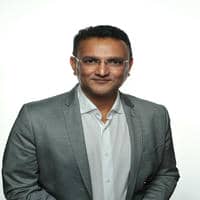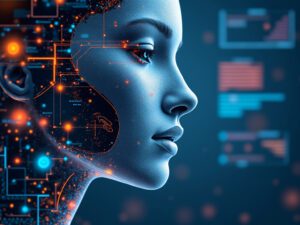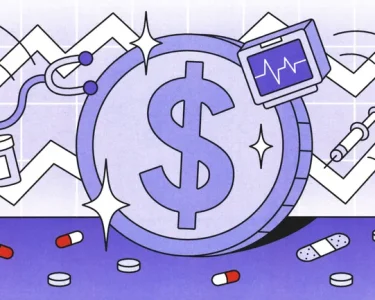The following is a guest article by Srinivas Iyengar, IG Head: Healthcare & Life Sciences at Happiest Minds
Healthcare, at its heart, is about equity. It ensures that everyone, regardless of where they live or what they earn, deserves access to quality care. Yet for millions, this ideal remains out of reach. Geographic isolation, financial constraints, and a shortage of skilled professionals continue to create barriers to timely and effective treatment.
In recent years, artificial intelligence has begun to quietly shift this landscape. No longer confined to research labs, AI is now present in clinics, homes, and frontline health centers. It’s helping diagnose faster, deliver insights more efficiently, and extend care to those who have long been underserved. In this transformation, while AI’s role has been phenomenal in extending care to the most remote areas and improving accessibility, it has not stepped in as a caregiver, replacing experts. Instead, it has emerged as a companion, supporting, amplifying, and enabling qualified professionals to do what they do best.
How AI is Making Diagnostics Available Everywhere
AI systems today can scan X-rays, analyze retinal images, and detect irregularities in pathology reports with impressive accuracy. But data alone doesn’t heal. Interpretation, clinical context, and the patient’s story still belong to the practitioner.
Take diabetic retinopathy, for example, a condition that can lead to blindness if left undetected. AI-powered tools can now analyze images of the eye captured on basic smartphone cameras and screens for early signs. In the absence of an ophthalmologist, a community health worker can still offer an informed warning. In Telangana, government initiatives are using AI to screen for oral, breast, and cervical cancers across districts. These systems flag high-risk images, which medical experts then review. The result is earlier detection and faster response when it matters most.
This is where AI brings real value, not by delivering verdicts, but by ensuring no case is overlooked in the rush. When layered with the knowledge and sensitivity of a trained professional, AI becomes a silent yet powerful ally in diagnostics, helping extend the reach of care to those who need it most.
Bridging the Gap in Specialist Care
The true promise of AI lies in its ability to bridge distances and reduce disparities. In areas where healthcare infrastructure is stretched thin, these tools are becoming a quiet lifeline. Wearables and remote monitoring devices alert caregivers to changes in vital signs. Smart screening platforms help local clinics detect red flags. And through telemedicine, advice reaches where specialists physically cannot.
A systematic review published on PubMed points to how AI and telehealth are reshaping care delivery in rural and underserved communities. Professionals are now able to offer advice, screen patients, and even initiate treatment remotely, reducing delays and expanding access in ways that were once unimaginable.
Yet even here, AI plays a supporting role. These technologies enable faster triaging and better visibility, but the decision to act, to intervene, to care, remains in human hands.
Technology that Respects the Human Element
AI works best when it understands its place. In the clinics, homes, and mobile vans where it operates, it’s not the voice of final authority. It’s the quiet nudge that helps a nurse flag a symptom, the background system that alerts a doctor to a hidden pattern, the algorithm that helps route a case to the right specialist just a little faster.
This is not hypothetical. In the real world, clinicians are using AI to review chest X-rays, predict post-operative complications, and even prioritize critical care cases. But they always retain the final say.
That balance of trust, humility, and collaboration is important. It’s also the reason why Happiest Minds‘ work in this space has focused less on high-tech promises and more on ground-level transformation. The goal has never been to impress with complexity, but to empower with clarity. In doing so, the team has contributed to systems where AI earns its place by proving helpful, not disruptive.
The Road Ahead
There’s no denying the economic impact of AI in healthcare. A paper by the National Bureau of Economic Research estimates that adopting AI more widely could save the U.S. healthcare system between $200 and $360 billion annually.
But savings only tell part of the story. The real win is in the patient who doesn’t lose vision because a field worker flagged an eye condition early. It’s in the village where cancer screenings now happen routinely. It’s the young mother who doesn’t have to choose between a day’s wages and a distant doctor’s visit.
Those are the stories that matter. They remind us that AI is not a revolution in data, but in dignity and access.
Through its healthcare-focused work, Happiest Minds continues to contribute to this quiet transformation. With every solution built, every workflow refined, the aim has been to support the hands that heal and to make quality care a little more reachable for everyone.
Because in the end, healthcare is still a human story. And every line of code should honor that.
 About Srinivas Iyengar
About Srinivas Iyengar
Srinivas Iyengar is the Head of Healthcare & Life Sciences Industry Group at Happiest Minds. He is a thought leader and visionary in the future of healthcare and consulting organizations, working towards bringing in the required change today. Having been in the Information Technology space for over 25 years and managing businesses across Europe, the USA, and India, he brings a world perspective to initiatives to get the ‘Outside-In’ approach.
In addition to his significant role at Happiest Minds, Srinivas is an active contributor and speaker on Healthcare and Technology at various business schools, a mentor for startups in emerging deep tech, data analytics, and healthcare, and handles artificial intelligence and digital enterprise programs. He is also a member of the Board of Studies and an adjunct professor at Dayanand Sagar University. He has been recognized among the ‘Top 50 Global Thought Leaders and Influencers on HealthTech’ by a leading global platform.



